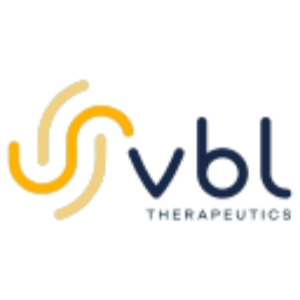VBL Therapeutics to Present New Data on Its MOSPD2 Bispecific Antibody Program for Solid Tumors in Late Breaking Research Session of the AACR Virtual Annual Meeting
VBL Therapeutics (Nasdaq: VBLT) announced promising data on its bi-specific antibodies targeting solid tumors, set to be presented at the AACR Virtual Meeting II from June 22-24, 2020. The findings reveal that MOSPD2 bi-specific antibodies enhance T-cell activation and significantly improve survival rates in mice with metastatic cervical cancer, with no observed toxicity. MOSPD2, linked to cell motility, is found in various solid tumors. VBL's innovative platform aims to harness MOSPD2 for developing treatments in oncology and inflammatory diseases.
- None.
- None.
Insights
Analyzing...
TEL AVIV, Israel, May 18, 2020 (GLOBE NEWSWIRE) -- VBL Therapeutics (Nasdaq: VBLT) announced today that new data suggesting the potential of its proprietary bi-specific antibodies for immune-mediated targeting of solid tumors will be presented at the Annual American Association for Cancer Research (AACR) Virtual Annual Meeting II, to be held June 22–24, 2020. VBL's data show that MOSPD2 bi-specific antibodies induce T-cell activation and significantly extend the survival of mice carrying established metastatic cervical cancer, with no evidence of toxicity.
VBL's research has identified MOSPD2 as a protein involved in cell motility, whose expression is highly elevated in various solid tumors. The proprietary bi-specific antibodies developed by VBL have two separate arms – one arm binds to MOSPD2 on tumor cells and the second recruits host T-cells that attack the tumor. The new data to be presented at AACR highlight the potential of bi-specific mediated immuno-oncology investigational therapy for the treatment of various MOSPD2-expressing solid tumors.
Details for the AACR 2020 Virtual Meeting II presentations are as follows :
- Permanent Abstract Number: LB-086
Title: CD3 MOSPD2 bi-specific antibody significantly prolongs survival in a model of metastatic human cervical cancer without any evidence of toxicity
Authors: Yacov et al.
Session Type: Poster Session
Session Category: Immunology
Session Title: Late-Breaking Research: Immunology 1 - Permanent Abstract Number: 5592
Title: MOSPD2 a novel target for bi-specific antibody mediated solid tumor cells immune death
Authors: Salem et al.
Session Type: Poster Session
Session Category: Immunology
Session Title: Inflammation, Immunity, and Cancer / Modifiers of the Tumor Microenvironment 2
VBL's presentations will be available on the AACR e-poster website on June 22, 2020.
About VBL's VB-600 Platform
VBL is conducting two parallel drug development programs that are exploring the potential of MOSPD2 (motile sperm domain-containing protein 2), a protein that VBL has identified as a key regulator of cell motility, as a therapeutic target for inflammatory diseases and cancer. Our VB-600 platform comprises classical anti-MOSPD2 investigational monoclonal antibodies for inflammatory indications, as well as bi-specific antibody candidates for oncology.
About VBL
Vascular Biogenics Ltd., operating as VBL Therapeutics, is a clinical stage biopharmaceutical company focused on the discovery, development and commercialization of first-in-class treatments for cancer. VBL’s lead oncology product candidate, ofranergene obadenovec (VB-111), is a first-in-class, targeted anti-cancer gene-therapy agent that is being developed to treat a wide range of solid tumors. It is conveniently administered as an IV infusion once every two months. It has been observed to be well-tolerated in >300 cancer patients and demonstrated activity signals in a VBL-sponsored “all comers” phase 1 trial as well as in three VBL-sponsored tumor-specific phase 2 studies. Ofranergene obadenovec is currently being studied in a VBL-sponsored phase 3 potential registration trial for platinum-resistant ovarian cancer.
Forward Looking Statements
This press release contains forward-looking statements. All statements other than statements of historical fact are forward-looking statements, which are often indicated by terms such as “anticipate,” “believe,” “could,” “estimate,” “expect,” “goal,” “intend,” “look forward to,” “may,” “plan,” “potential,” “predict,” “project,” “should,” “will,” “would” and similar expressions. These forward-looking statements may include, but are not limited to, statements regarding our programs, including MOSPD2, including their clinical development, therapeutic potential and clinical results and the impact of the COVID-19 pandemic on our business, operations, clinical trials, supply chain, strategy, goals and anticipated timelines and clinical results. These forward-looking statements are not promises or guarantees and involve substantial risks and uncertainties. Among the factors that could cause actual results to differ materially from those described or projected herein include uncertainties associated generally with research and development, clinical trials and related regulatory reviews and approvals, the risk that historical clinical trial results may not be predictive of future trial results, that our financial resources do not last for as long as anticipated, and that we may not realize the expected benefits of our intellectual property protection. A further list and description of these risks, uncertainties and other risks can be found in our regulatory filings with the U.S. Securities and Exchange Commission, including in our annual report on Form 20-F for the year ended December 31, 2019, and subsequent filings with the SEC. Existing and prospective investors are cautioned not to place undue reliance on these forward-looking statements, which speak only as of the date hereof. VBL Therapeutics undertakes no obligation to update or revise the information contained in this press release, whether as a result of new information, future events or circumstances or otherwise.
INVESTOR CONTACT:
Michael Rice
LifeSci Advisors, LLC
(646) 597-6979






